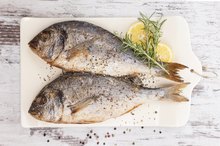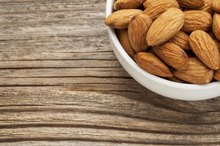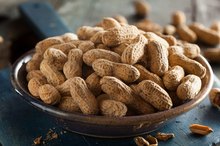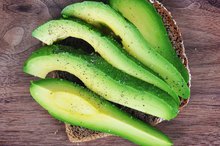Are Snails Healthy to Eat?
Snails are common in French restaurants, and you may be wondering whether this unusual food is a healthy addition to your diet. Snails provide essential nutrients, but keep in mind that the way you prepare them is important, too. Eat them as part of a balanced diet, and talk to a nutritionist if you are not sure how to fit them into your eating plan.
Weight Control
Snails can be healthy to eat, because they may help you with weight management, whether you need to lose weight or maintain your current weight. Losing weight means limiting your calorie consumption so that it is less than your expenditure. A 100-gram serving size of snails has only 90 calories. This serving provides 16 grams of protein, which is a filling nutrient. Snails may fit into a low-carbohydrate diet plan, since they only have 2 grams total carbohydrates per serving.
- Snails can be healthy to eat, because they may help you with weight management, whether you need to lose weight or maintain your current weight.
Fats
The Health Benefits of Kasha
Learn More
In a 100-gram serving of snails, 119 milligrams of eicosapentaenoic acid is provided, making them a healthy choice. EPA is a long-chain omega-3 fatty acid in seafood, and an average intake of 250 milligrams per day of this kind of fatty acid may lower your risk for heart disease, according to the 2010 Dietary Guidelines from the U.S. Department of Health and Human Services 1. Another benefit of snails is that they have less than 2 grams total fat and less than 1 gram unhealthy saturated fat.
Potassium and Sodium
Snails have a healthy level -- 382 milligrams -- of potassium and only 70 milligrams of sodium per 100-gram serving. A low-potassium, high-sodium diet can lead to high blood pressure and increase your risk for stroke, heart disease and kidney disease. Healthy adults should get at least 4700 milligrams of potassium per day and no more than 2300 milligrams of sodium.
Other Nutrients
Nutritional Content of Canned Oysters
Learn More
You need iron for healthy red blood cells, and snails provide 3.5 milligrams of iron, or nearly 20 percent of the daily value. The iron in snails is in the heme form, which is easier for your body to absorb than iron from plant-based sources. Other essential nutrients in snails are vitamin B-12 and magnesium.
Limit your intake of snails if you are on a low-cholesterol diet, because a 100-gram serving has 50 milligrams of cholesterol.
- You need iron for healthy red blood cells, and snails provide 3.5 milligrams of iron, or nearly 20 percent of the daily value.
- The iron in snails is in the heme form, which is easier for your body to absorb than iron from plant-based sources.
Related Articles
References
Writer Bio
Natalie Stein specializes in weight loss and sports nutrition. She is based in Los Angeles and is an assistant professor with the Program for Public Health at Michigan State University. Stein holds a master of science degree in nutrition and a master of public health degree from Michigan State University.









